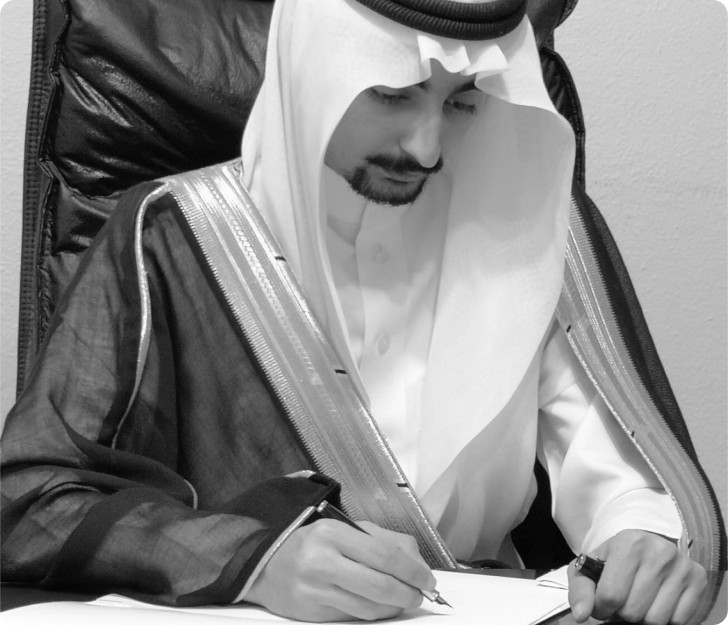What is the Zakat?
What Foreign Investors Need to Know About Zakat
Saudi Arabia’s economic landscape is steeped in tradition and guided by principles rooted in Islamic law. Understanding Zakat — a mandatory charitable contribution under Islamic law — is a critical step toward successful integration into the Saudi business environment for foreign investors and businesses looking to establish or expand their operations in the Kingdom.
Khalaf Bandar Law Firm will explain the concept of Zakat, how it applies within the business context, and its implications for foreign investors in Saudi Arabia. Whether navigating taxation policies or planning your next financial strategy, our legal services can help provide insights to help you make informed decisions.
What is Zakat?
Zakat, meaning “purification” or “growth” in Arabic, is one of the Five Pillars of Islam. It is a compulsory form of almsgiving that Muslims are required to pay annually, provided their wealth surpasses a minimum threshold (known as the “nisab“). Beyond its religious significance, Zakat serves a socioeconomic role by redistributing wealth, supporting the underprivileged, and fostering community development.
For businesses operating in Saudi Arabia, whether wholly domestic or involving foreign partnerships, understanding Zakat is crucial to ensure compliance with local laws and to align with cultural norms.
How is Zakat Calculated?
Calculating Zakat involves assessing specific assets and applying a fixed rate of 2.5% to their value if they exceed the nisab. Here’s a simple breakdown:
- Identify Zakat-Eligible Assets: Zakat applies to specific asset categories, including cash, gold, silver, business inventory, and investments.
- Determine the Nisab: The nisab is calculated based on the value of a certain weight in gold or silver (typically around 85 grams of gold or 595 grams of silver). Assets exceeding this value are Zakat-eligible.
- Apply the Rate: Zakat is set at 2.5% of the eligible assets’ value that exceeds the nisab.
For example, if your gold holdings are valued at $10,000 and the nisab is $5,000, Zakat would apply to the additional $5,000, resulting in a payment of $125 (2.5%).
Zakat Guidelines for Non-Muslims and Foreign Businesses
While Zakat is a religious obligation for Muslims, non-Muslim individuals and foreign businesses are generally exempt. However, if a Saudi business operates as a partnership with a foreign entity, the Zakat obligation applies to the Saudi portion of the ownership. Conversely, wholly foreign-owned businesses are typically subject to income tax rather than Zakat.
Foreign businesses operating in Saudi Arabia should note that income tax—not Zakat—is levied on their profits. The standard income tax rate is 20% of net profits for foreign companies. By understanding these distinctions, businesses can ensure compliance with Saudi Arabian taxation regulations while respecting local cultural and legal frameworks.
The Role of Zakat in Saudi Arabia’s Economy
Zakat is more than just a religious contribution; it is a fundamental element of Saudi Arabia’s economic system. By redistributing wealth and supporting charitable causes, Zakat contributes to reducing inequality and promoting social stability—key components of Vision 2030, the Kingdom’s comprehensive plan for economic diversification and development.
From a business perspective, Zakat reinforces ethical practices and social responsibility, aligning organizations with values deeply rooted in Saudi Arabian culture.
Integrating Zakat into Business Financial Planning
For foreign investors and businesses operating within Saudi Arabia, accounting for Zakat in their financial planning can streamline operations and build stronger community connections. Here are some steps to consider:
- Understand the Applicability: Assess whether your business structure subjects you to Zakat or income tax. Consult with legal and financial advisors to clarify your obligations.
- Maintain Transparent Financial Records: Zakat is calculated based on eligible assets, so maintaining clear and accurate records is essential for compliance.
- Leverage Professional Support: Partnering with financial professionals who are well-versed in Zakat and Saudi taxation laws can help ensure accurate calculations and timely payments.
By integrating Zakat into their financial strategies, businesses can not only ensure compliance but also align with cultural values and enhance their reputation within the Kingdom.
Why Legal Support is Crucial For Foreign Investors
Starting or expanding a business in Saudi Arabia comes with its own set of challenges, from navigating regulatory requirements to understanding local taxation laws, including Zakat. Having experienced legal support can help foreign investors streamline operations and avoid potential pitfalls.
The Saudi legal system is governed by a combination of Sharia (Islamic law) and specific commercial regulations, such as the Companies Act. For international investors, understanding these nuances is vital to ensuring compliance and protecting their investments.
How Khalaf Bandar Law Firm Can Help Foreign Investors
Zakat is not just a financial obligation but a deeply embedded cultural and economic practice in Saudi Arabia. For businesses operating in the Kingdom, understanding and integrating Zakat into their strategies is critical for compliance and cultural alignment. At the same time, foreign investors should educate themselves about the broader legal and regulatory landscape to maximize their chances of success.
Are you planning to invest in Saudi Arabia? Ensure your business thrives by seeking legal support from the team at Khalaf Bandar Law Firm. This will help you become well-versed in Zakat and taxation obligations. Contact a trusted legal advisor today to pave the way for seamless, successful operations in the Kingdom.



